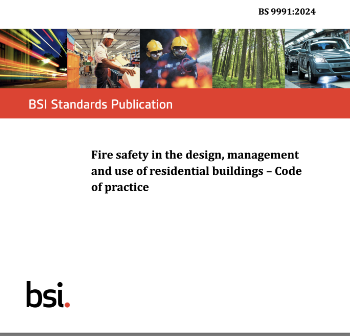Supply chain sustainability school

|
| The Supply Chain Sustainability School https://www.supplychainschool.co.uk/ |
Contents |
[edit] Introduction
Launched in 2012, the Supply Chain Sustainability School is an industry-wide collaboration of major companies to enable a sustainable built environment through knowledge and collaboration. The School is unique – it enables collaboration between competitor companies who share a common supply chain, and a realisation that the industry cannot develop the sustainable buildings and infrastructure society it needs without more sustainable suppliers. Its free online learning platform gives 50,000 registered users access to 3,000 learning resources, 400 virtual training sessions each year, and a range of diagnostic and benchmarking tools to support companies on focusing their sustainability strategies.
[edit] Topics
The school covers a variety of topics with a varying number of subtopics, may of which relate across the different areas.
[edit] Sustainability
Backed by the UK’s top construction contractors and clients, the School helps to meet the challenging sustainability targets set out by the UK Construction Strategy 2025. The School provides free, practical support in the form of CPD-accredited e-learning modules and training workshops, tailored assessments and action plans, benchmarking tools, networking opportunities, and access to thousands of online resources. Sub-topics under sustainability include; air quality, energy and carbon, environmental management, business ethics, materials, fairness, inclusion and respect, modern slavery, performance measurement, social value, sustainable procurement, sustainable strategy, waste and resource efficiency and water.
[edit] Management
Whilst the skills associated with net zero, social value and modern methods of construction, unless the skills to lead and manage change in business are taught, goals will not be achieved. Embedding key management skills and competencies within business can help manage these challenges, this topic also includes management assessment tool. Subtopics covered include; change management, innovation, leadership and culture, marketing and business development, project management, quality management, supply chain management, collaboration.
[edit] Offsite
The School provides hundreds of best-in-class learning resources that help to build an understanding of offsite and the five elements of industrialisation: design for manufacture and assembly, offsite manufacturing, logistics, onsite assembly and best-in-class maintenance. New and smarter construction techniques are needed to build a more profitable and sustainable industry that can deliver the significant reductions in costs, project times and CO2 emissions that are called for by the Construction Playbook.
[edit] Digital
Digital technology has the potential to transform construction – but only if the sector is equipped with the right skills and knowledge. Modern technologies can raise productivity, increase efficiency, improve quality and safety, reduce our sustainability impacts and help attract people to the sector. Without widespread digital adoption, the construction industry risks being marginalised and losing a generation of new talent to other sectors. Subtopics within this area include; digital leadership, capabilities, cyber security, digital adoption, the business case for digital as well as the inclusion of a digital maturity assessment tool.
[edit] Procurement
It is equally important to measure a supply chain’s performance in real time to understand how to deal with problems as they arise. The School has developed a free, simple, cloud based application that can be used on any project aswell as a self assessment tool. The school offers 11 Supply Chain Improvement Programmes (SCIPs) with the aim of improving productivity and performance, working with groups of buyers and suppliers to demonstrate productivity improvements through better procurement and more collaborative working. Subtopics include; procurement for beginners, procurement for professionals, supplier relationship & management, collaborative construction procurement.
[edit] Lean Construction
Lean tools and techniques can help businesses to reduce costs, improve performance, tackle key sustainability issues and ultimately improve business efficiency. Implementing lean principles also helps to create a workplace environment in which everyone plays a positive part in building success, from senior management to those working on the ground. This section also includes a lean capability assessment tool leading to a 10 point learning plan. Subtopics include; value stream mapping, visual management, 5S workplace organisation, problem solving and continuous improvement, collaborative planning and production control, lean construction and waste, standardised work.
[edit] People
The People Matter Charter was created to help organisations up and down the supply chain address these challenges together, in one workforce strategy. The Charter has eight commitments that can apply to any organisation, of any size. The Fairness, Inclusion and Respect (FIR) programme is an industry-wide initiative that aims to make workplaces better for everyone. The programme provides, free, industry-endorsed training and resources, guidance and materials, that supports businesses to be more innovative and profitable by addressing workplace culture challenges, and helps attract and retain people from the full pool of talent. A number of subtopics are covered with the topic which include; right to work, human rights, wages, Fairness, Inclusion & Respect (FIR), wellbeing, modern slavery, employment, training and skills.
[edit] Award winning
In April the school has been awarded the Queen’s Award for Enterprise in Sustainable Development because its approach has delivered significant environmental, social and economic benefits to its members and partners. The School has led pioneering work to set new standards in climate change, modern slavery, social value, sustainable supply chain management and more.
Ian Heptonstall, Director of Supply Chain Sustainability School said: “When we first floated the idea of an online sustainability learning platform for the built environment industry, we were told it was unlikely that competing companies would collaborate, nor would people use an online training platform. But most of all, that the supply chain were simply not interested in sustainability.
“A decade on and 50,000 people have trained through the School - last year alone we had over 100,000 e-learning downloads. We’re thrilled to receive a Queen’s Award for Enterprise in Sustainable Development. I see it as thank you to all those people who have joined us to collaborate and drive real sustainable change across our industry.”
Co-funded by over 180 collaborating companies (Partners), the School is delivered by an independent third-party consultancy, Action Sustainability. Leadership is provided by a School Board comprising elected representatives of Partners, responsible for fiscal governance and strategic direction. A Code of Ethics is signed by all Partners as part of the School Constitution and Partners lead the direction of the School content and activities through leadership groups.
Her Majesty The Queen personally approves the winners and the Department for Business, Energy & Industrial Strategy publicly announced the winners on Thursday 21 April 2022. Now in its 56th year, the Queen’s Awards for Enterprise are the most prestigious business awards in the country, only awarded for outstanding achievements, entitling winning businesses to use the esteemed Queen’s Awards Emblem for the next five years.
Shaun McCarthy OBE, Chair of Supply Chain Sustainability School said: “I was honoured by Her Majesty in 2013 with an OBE for services to sustainability and London 2012. This is different, it’s not about me, it’s for everybody involved in the School over the past 10 years and so, we dedicate this award to you! Thank you, all.”
[edit] Anniversary
The School’s 10-year anniversary will take place on Tuesday 21 June 2022. Its vision is of a built environment industry where everyone has the skills and knowledge to deliver a sustainable future.
The above article is based on email press release entitled 'SUPPLY CHAIN SUSTAINABILITY SCHOOL HONOURED WITH QUEEN’S AWARD FOR ENTERPRISE IN THE CATEGORY OF SUSTAINABLE DEVELOPMENT' for use after 1am on 21st April 2022 along with text and information from the website noted at the top of the page for further information.
[edit] Related articles on Designing Buildings
- Collaborative practices.
- Collateral warranties.
- Contractor vs supplier.
- Cyber resilience.
- Fair payment practices.
- Green supply chain management.
- Integrated supply team.
- Named supplier.
- Partnering.
- Supply.
- Supply chain integration.
- Supply chain management.
- Sustainable development.
- Sustainable materials.
- Sustainable procurement.
- Sustainability appraisal.
- The Carbon Plan: Delivering our low carbon future.
- UK Climate Change Risk Assessment.
- UKGBC launches new Solutions Library to enable sustainable buildings.
- Zero carbon homes.
- Zero carbon non-domestic buildings.
Featured articles and news
CLC and BSR process map for HRB approvals
One of the initial outputs of their weekly BSR meetings.
Building Safety Levy technical consultation response
Details of the planned levy now due in 2026.
Great British Energy install solar on school and NHS sites
200 schools and 200 NHS sites to get solar systems, as first project of the newly formed government initiative.
600 million for 60,000 more skilled construction workers
Announced by Treasury ahead of the Spring Statement.
The restoration of the novelist’s birthplace in Eastwood.
Life Critical Fire Safety External Wall System LCFS EWS
Breaking down what is meant by this now often used term.
PAC report on the Remediation of Dangerous Cladding
Recommendations on workforce, transparency, support, insurance, funding, fraud and mismanagement.
New towns, expanded settlements and housing delivery
Modular inquiry asks if new towns and expanded settlements are an effective means of delivering housing.
Building Engineering Business Survey Q1 2025
Survey shows growth remains flat as skill shortages and volatile pricing persist.
Construction contract awards remain buoyant
Infrastructure up but residential struggles.
Home builders call for suspension of Building Safety Levy
HBF with over 100 home builders write to the Chancellor.
CIOB Apprentice of the Year 2024/2025
CIOB names James Monk a quantity surveyor from Cambridge as the winner.
Warm Homes Plan and existing energy bill support policies
Breaking down what existing policies are and what they do.
Treasury responds to sector submission on Warm Homes
Trade associations call on Government to make good on manifesto pledge for the upgrading of 5 million homes.
A tour through Robotic Installation Systems for Elevators, Innovation Labs, MetaCore and PORT tech.
A dynamic brand built for impact stitched into BSRIA’s building fabric.
BS 9991:2024 and the recently published CLC advisory note
Fire safety in the design, management and use of residential buildings. Code of practice.























